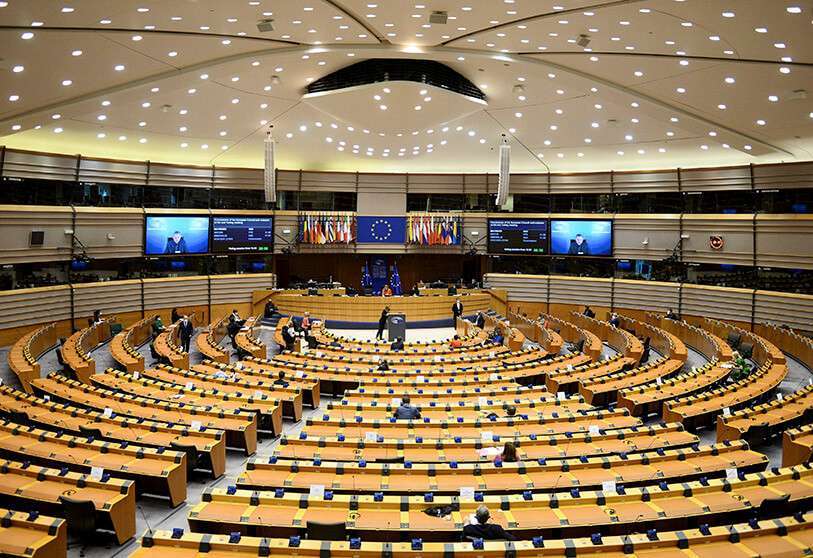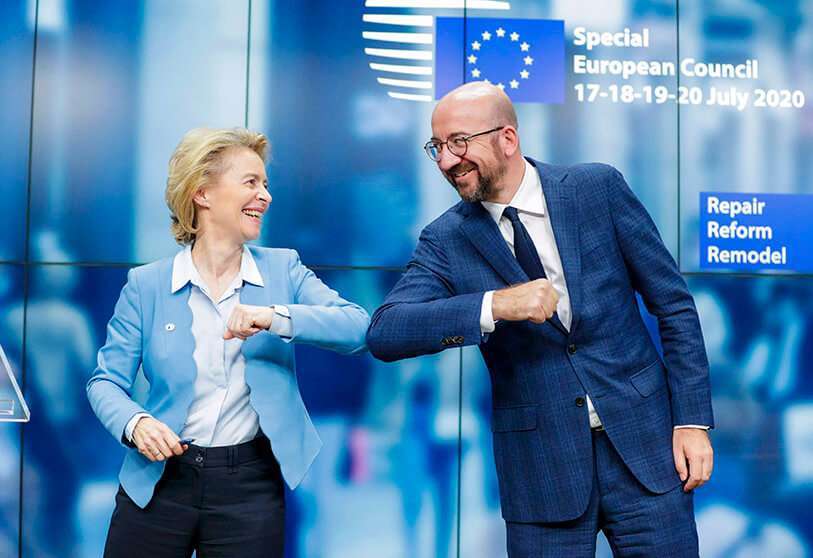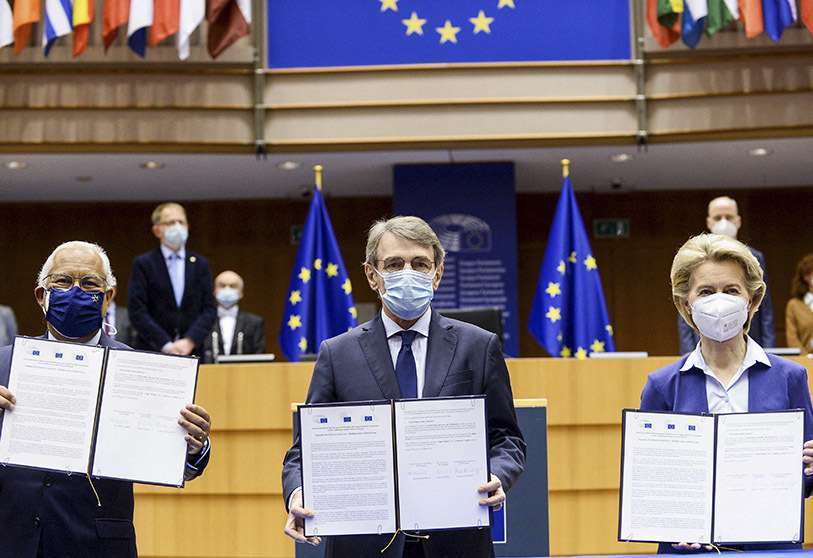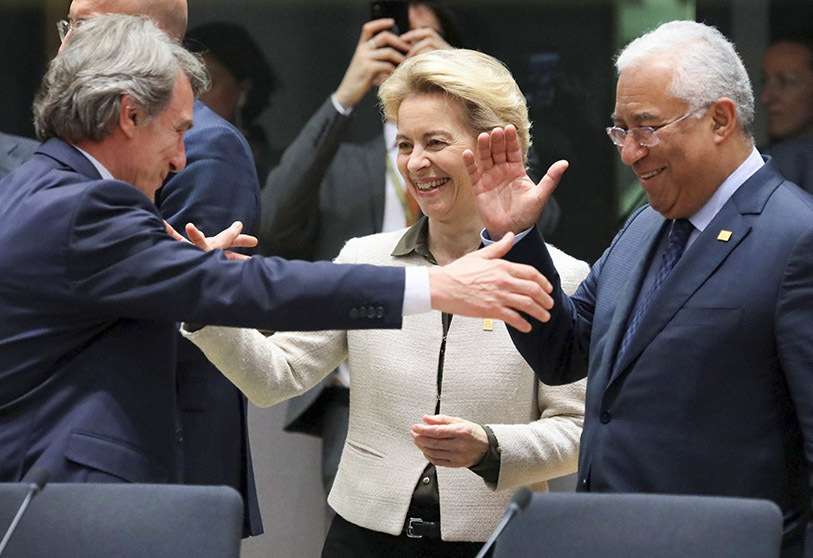The Conference on the Future of Europe and institutional reform

Actually, I should begin by correcting the title of my own article and introducing a "no" in it, because, as things are going, it seems that the Conference on the Future of Europe is moving, with no clear direction, towards the non-reform of the EU institutions.
This is indeed the declared intention. And it is somewhat embarrassing that precisely when strong leadership of the European institutions is most needed in the face of the enormous challenges facing the EU today - at home and abroad - the pressure seems to be mounting for them to become irrelevant or, at the very least, to remain as weak as they are today. It is a blatant paradox that when, in the wake of the Afghanistan debacle, the need for strategic autonomy for the EU is rightly argued, and it is even proposed that there should be a European army, there is no permanent and cohesive institution that can take the decision to mobilise this army and send it to carry out military tasks in war zones, nor do they want there to be one. For neither the Foreign Affairs Council nor the High Representative for Foreign Affairs and Security Policy - currently Spain's Josep Borrell - has this capacity in full and depends on the unanimous agreement of 27 states.
And yet, the objective of such a reform, which would require an amendment of the treaties, is not on the agenda of the Conference on the Future of Europe. In fact, the current President of the European Council, Charles Michel - when he was still Prime Minister of Belgium - in a speech to the plenary session of the European Parliament on 3 May 2018, in which the future of Europe was being debated, argued that a modification of the Treaties at this time "would even be counterproductive", which did not prevent him, however, from speaking at the same time of the existence of a "fundamental crisis of faith" in the institutions. In fact, Michel's speech was part of a series of debates in which the European Parliament invited all the prime ministers of the EU Member States to express their views on the future of Europe, its challenges and its needs. In those debates, which took place between January 2018 and April 2019, not a single prime minister made any reference to the need to reform the institutions and make them stronger, more representative and more efficient. It is not surprising, then, that when the Council set its final position on the objective of the Conference on the Future of Europe in June 2020, it adopted what the Council itself called a "policy first approach", i.e. that what was important was the debate on the policies to be followed and not on the institutions that should adopt and implement those policies.

In this sense, moreover, there was a broad consensus among the institutions - the European Parliament, the Council and the Commission - on what those policies should be around which the Conference debate should focus: the green transition, the digital transformation, the reaffirmation and protection of EU values, social challenges (migration, health, equality, integration, employment), and the EU's position in the international context. Above all, the idea was to focus on "issues of real interest to citizens" and to conduct an open and intensive process of citizen participation, promoting consultations and citizens' dialogue panels. The only aspect of an institutional nature on whose reform the institutions agree is, on the one hand, to consolidate the list-head system (that the head of the most voted list in the European Parliament elections should be appointed President of the European Commission) and, on the other hand, to introduce transnational lists, which means that a certain number of MEPs should be elected in a European constituency, through these lists, and not only - as it is now - in the framework of national constituencies.
In principle, the intention could not be more laudable: open participation and exclusive attention to the interests of citizens. At the same time, however, the necessary reforms of the institutions that are to carry out the policies that are of interest to the citizens are being forgotten, or rather, expressly relegated. This exercise is not new, we have seen it before, and the result could not be more discouraging: frustration, disenchantment and alienation from the citizens who are supposed to be listened to and listened to.

Terms such as citizen participation, or attending to the true interests of citizens, have traditionally been used in debates on reforms and the future of the EU as a smokescreen to distract from and conceal the primary objective of EU reform: its consolidation as a supranational political entity, accentuating the process of political and economic integration and providing it with solid, cohesive and democratic institutions. Institutions that, in truth, are capable of acting efficiently, more in representation of the citizens of Europe, than - as is currently the case - in representation of the particular interests of the Member States.
The European project is today a process under construction; it is, as the first article of the Treaty on European Union states, a "stage in the process of creating an ever closer union among the peoples of Europe". A union in which, moreover, decisions must be taken "as openly as possible and as closely as possible to the citizen". I do not believe, therefore, that the great debate today should be about the definition of the EU's objectives and policies. The Treaties already define them in great detail and at great length, and what is not there, in this area, is perfectly definable - as, in fact, is already the case - in the Council's strategic agenda, or in the Commission's political programme. So there is no need for a Conference on the future of Europe. However, such a conference is needed to address the reforms that really matter in the institutional structure and functioning of the EU, and to carry out the corresponding reforms of the Treaties.

And, in truth, there is no need to go to great lengths or organise extraordinary forums to try to work out what is needed. It is already done. Thus, in a wonderful exercise of reflection on what it then called its vision for the future of Europe, the European Parliament adopted in 2017 three important resolutions on possible reforms in the institutional structure of the EU, on the functioning of the institutions, and on financial reforms and the budgetary capacity of the euro area, the result of three extensive and detailed reports drafted by leading parliamentarians from the then three most relevant political forces in the Parliament: Mercedes Bresso (S&D) and Elmar Brok (EPP), the first; Guy Verhofstadt (ALDE), the second; and Reimer Böge (EPP) and Pervenche Berès (S&D), the third.
There, with great moderation and trying not to make a radical reform of the Treaties, it was proposed, among other things, to turn the Council into a real legislative chamber - the Senate of Europe - by reducing the number of its configurations and turning them into preparatory committees for its work; to abolish unanimity in the Council and introduce qualified majority voting for decisions on all matters within the Union's competence; to turn the Commission into the real - and only - executive power of the EU, reducing its number of members; to consolidate the system of list heads to elect the President of the Commission; to create a special Council for EU matters, reducing the number of members; to consolidate the system of list heads to elect the President of the Commission; and to create a special Council for EU matters, with a special role for the President of the Commission and the President of the Council; create a special Council for defence issues, chaired by a new EU Defence Minister, Vice-President of the Commission; create an EU Finance Minister, Vice-President of the Commission, able to steer all EU economic and financial policy and chair the Eurogroup; give a greater role to the European Parliament, including the power of legislative initiative and the power of control over all EU policies, including financial policy and the common foreign and security policy; create a European Monetary Fund, which would absorb the European Stability Mechanism and have the capacity to borrow and lend money if necessary.

In truth, this is not the reform I would have sought either, and I would have loved to go further in consolidating a federal and parliamentary model of EU governance. However, I would have preferred this to be the objective of the debate at the Conference on the Future of Europe, rather than an ethereal debate on models of citizen participation and the definition of policies that have already been defined. The Mediterranean has been discovered many years ago. The question is how best to navigate it.
Antonio Bar Cendón, Professor of Constitutional Law and Jean Monnet Professor "ad personam" at the University of Valencia.


